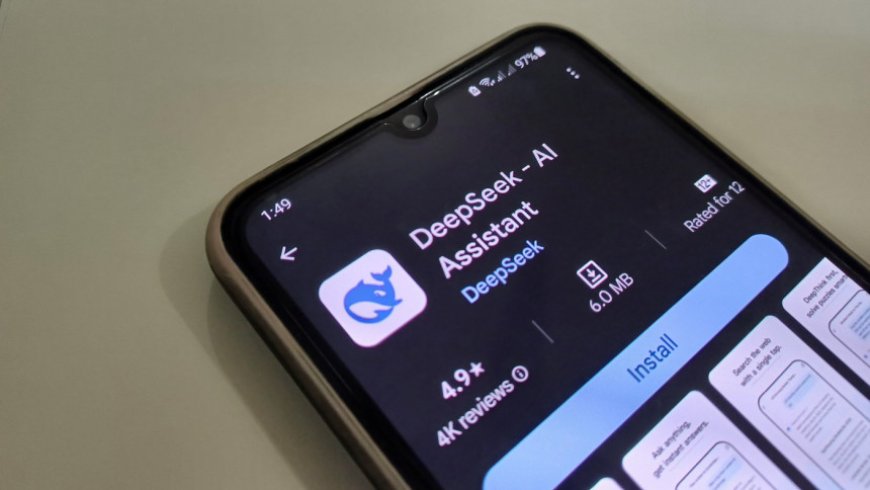What is DeepSeek, and how is it causing Nvidia to lose billions?
What is DeepSeek, and how is it causing Nvidia to lose billions?

In the fast-changing world of artificial intelligence (AI), a new contender has emerged, challenging the status quo and disrupting the balance of power in global tech. DeepSeek, a Chinese AI startup, has been making waves due to its cost-effective innovations and its potential to rival major Western players like OpenAI and Anthropic. This rise has also been a key factor in Nvidia's dramatic market cap drop on January 27, where the leading AI chip company lost 17% of its market share, equating to a $589 billion loss—the largest single-day loss in US stock market history. However, DeepSeek's rapid success has sparked controversy, raising concerns about the ethics and economic consequences of its approach. Here's an overview of what DeepSeek is and the excitement surrounding it.
Founded in 2023, DeepSeek is a startup based in Hangzhou, China, established by engineering graduate Liang Wenfeng. After the launch of OpenAI's ChatGPT, many Chinese companies attempted to create their own AI chatbots but failed to meet user expectations. DeepSeek, however, has garnered attention for its different approach. The company recently gained significant recognition in the US tech industry for its advanced AI model, with its 'DeepSeek - AI assistant' app reaching the top charts on the US Apple App Store and Google Play Store.
DeepSeek has positioned itself as a formidable competitor in the AI race, particularly with the release of its R1 and V3 models. According to a recent report from The Verge, the company claims to have developed its open-source V3 LLM model with a budget of under $6 million and just 2,000 Nvidia chips—far fewer resources than Western companies like OpenAI, which reportedly used over 16,000 chips. OpenAI CEO Sam Altman has stated that GPT-4’s development cost over $100 million. DeepSeek's official WeChat post reveals that its R1 model is 20 to 50 times cheaper to use than OpenAI's O1 model, depending on the task.
A Threat to Western Dominance
DeepSeek's rapid advancement has raised alarms among Western tech giants and investors. Its ability to achieve impressive results with limited resources challenges the belief that success in AI development is solely dependent on capital and computational power. This has prompted a reassessment of investment strategies across the industry, with other tech companies scrambling to adapt.
Nvidia's shares dropped by more than 13%, while other companies like Dutch chipmaker ASML saw a more than 10% decline. AI investor SoftBank lost over 8%, and Tokyo Electron dropped 4.9%, according to a recent Business Insider report. The pan-European Stoxx 600 index also fell on January 27, with tech stocks experiencing a sharp 4.5% drop. Notably, German AI infrastructure provider Siemens Energy plummeted nearly 20%, while French digital automation firm Schneider Electric saw a 9% decrease. These declines were mirrored in Asian markets, where Japanese chipmakers like Disco and Advantest (a supplier to Nvidia) saw losses of 1.8% and 8.6%, respectively. In the US, Nasdaq 100 futures dropped 2.6%, and S&P 500 futures slid 1.4%, according to The Guardian.
While the technology behind DeepSeek's models is being hailed, its rise has significant geopolitical implications. It not only represents a technological shift but also poses a broader challenge to Western dominance in AI research and development. The prospect of China gaining a strong position in this field has fueled tensions in the ongoing tech rivalry between the US and China.
In a recent update, DeepSeek announced on January 27 that it would temporarily halt new registrations due to "large-scale malicious attacks" on its software.
DeepSeek's ascent coincides with the US imposing restrictions on the sale of advanced chips, essential for AI development, to China. To continue progressing without a steady flow of imported chips, Chinese AI developers have been collaborating and testing alternative approaches. This has resulted in the creation of AI models that require significantly less computing power, making them far more affordable than anticipated, potentially upending the entire industry.
DeepSeek’s rise marks a pivotal moment in the AI industry. Its disruptive approach has already reshaped the narrative around AI development, proving that innovation isn't solely in the hands of well-funded tech giants. As the company continues to expand, the world will closely monitor how it navigates the complex intersection of technology, ethics, and geopolitics.
What's Your Reaction?


















































































